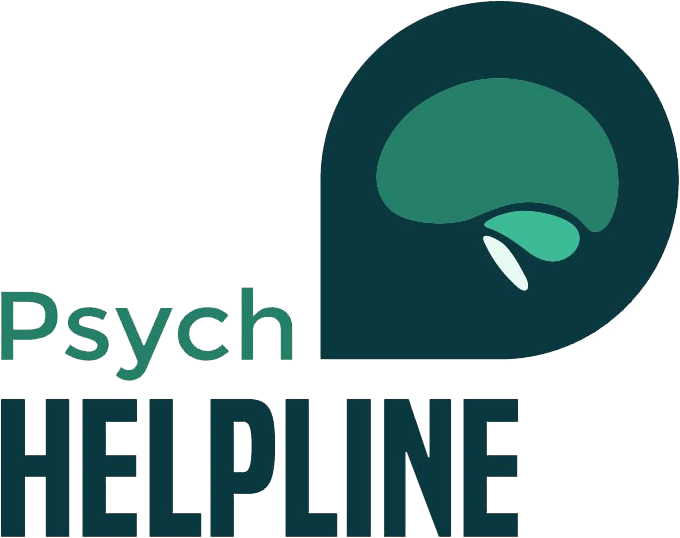Table of Contents
If someone you’re close to is struggling, not knowing how to help someone with OCD can be hard. To cure someone with Obsessive Compulsive Disorder, other things must be partnered with regular therapy. We understand, that you might be struggling to understand the irrationality of an OCD sufferer’s obsessions and compulsions. Yet, at the end of the day, the lack or presence of your support can make a huge difference in their progress rate.

We have developed the following guidelines that might be useful is curing OCD. You can adapt some of these practices to strengthen your relationship with an individual struggling with OCD. Furthermore, these practices can also help beat down the taboo-ness our society associates with cognitive disorders. So, continue reading if you want to find out how to help someone with OCD;
Convince them to seek treatment
Before rushing to any other habits you can adopt, particular OCD sufferer should be receiving the treatment they’re supposed to. Getting someone self can be quite hard due to the factor of shame associated with most cognitive ailments. Sometimes individuals with OCD consider therapy useless and feel like they can successfully take hold over their condition.

Another common occurrence is the fear of seeking treatment because some individuals with OCD don’t know how to open up and share. So, as a supportive confident you can step in and help them recognize the need to seek treatment. Here are some ways you can convince them to try therapy:
- Knock fears to the curb: Make the confidentiality of therapy very clear right from the start. Once people understand that their thoughts and feelings are safe with their therapist they’re more willing to give therapy a chance.

- Do your homework: Stay informed on that particular ailment and its cure. You must be prepared to tackle their defensiveness with truthful answers if you want them to trust your suggestion.
- Dispel their fears: Don’t forget to provide assurance. Once you suggest professional treatment as a cure, an individual with OCD might feel like you’re abandoning them. So, while presenting this idea always assure the presence of your 100% support through it all. This might help them understand that it’s all for the patient’s betterment.
- Don’t make it a laughing matter: Being hand-off with such a suggestion might offend them. So, take things seriously while presenting the possibility of professional treatment as a cure. Being non-serious can lead them on to believe you’re making fun of their condition and undermining their struggle.

- Maintain discretion: Don’t present this idea at a bad moment or in a crowd full of people. This can only lead to resentment and embarrassment.
- Uplifting TED talk: Shatter any prior ideas that a person might have about seeking professional help. The public opinion labels mental health as a taboo and anything associated with such treatments is considered as cowardice. Help your loved ones understand that they’re being brave and taking a step for betterment.

- Promise your support: If a therapist allows you can accompany your loved one to a few sessions until they feel totally comfortable with their surroundings.
The gold-standard treatment for Obsessive-Compulsive Disorder in recent times is a behavioural therapy program partnered with regular medication. The therapies used by most licensed therapists are Cognitive-behavioral therapy (CBT) partnered with Exposure and response prevention (ERP). The success rate of these therapy programs are quite positive and can reduce the impact OCD triggers have over a person’s life.

Meanwhile, the medication widely trusted for Obsessive-Compulsive Disorder should only be used after consulting a healthcare professional and your therapist. These include;
- Fluoxetine / Prozac (adults and children above 7 years)
- Fluvoxamine (adults and children above 8 years)
- Clomipramine /Anafranil (adults and children aged 10 or older)
- Paroxetine / Pexeva (strictly for adults only)
Consent is necessary

You can convince an OCD sufferer to seek professional help but it’s unfair to remain adamant all the time. It’s always the right of the patient to decide what’s best for them. A person might not be approaching therapy due to private reasons; lack of confidence, some other issue etc. So, try to present your idea as honestly, and kindly as possible. If there’s no position response, it’s time for you to back off because there’s nothing more important than consent and willingness.
Patience is the key
While dealing with individuals who have OCD, its essential to keep your temper in check. Irrationality is bound to make anyone angry and that sort of irrationality is on its peak due to OCD. So, always remember that the worries and fears of these individuals I extreme real to them.

Even if their irrational fears seem unrealistic, to you try to act as patient as you can act. Furthermore, don’t expect an unusual amount of progress from the sufferers. Progress in these cases is always gradual and slow-paced. Fast improvement sometimes leads to relapses so keep your head high instead of losing faith over your loved ones.
Get a hold over yourself
As a close relative or loved one of someone of the OCD scale, it’s your job to provide as much support as you again. This particular aspect shouldn’t make you stray from taking your own care. Sometimes, loved ones tend to lose themselves while maintaining the comfort of their loved ones.

If you’ll continue devoting yourself to the cause you’ll blow over one of these fays due to frustration. So, take time to look after yourself too because if you won’t be better you won’t be able to do any better for anyone else.
Appreciate small improvements
It’s quite foolish to expect miraculous progress from someone who has OCD. These compulsions have developed over time so they’ll most likely take an equal amount of time to go away. One of the many issues people with OCD often complain about is the sort of hostility their family members show. If one of your closed ones have started treatment for OCD, they cannot miraculously become normal in two weeks. Progress takes time. So, you should appreciate the smaller steps instead of undermining them.

For instance, if a person struggles with arranging things more than 10 times. You can appreciate the fact that their treatment has tonned the turns down to only 5. Appreciating small accomplishments is essential because;
- It provides reassurance
- It’s a powerful motivator
- It’s a sign of hard work being recognized
Maintain moderation in proximity

Usually, family members have a natural tendency to protect. Being with a person with OCD 24/7 to offer support and protection can be highly toxic for both parties. This is a destructive practice and you need to have some amount of private time of your own instead of initiating co-dependency. Furthermore, this will stop an OCD patient from counting you as a coping mechanism during compulsions. These positive habits can also decrease the amount of shame and embracement Obsessive Compulsive Disorder sufferers feel for being dependent upon others.
Don’t neglect any red flags

The first step in curing someone is recognizing the issue. The obsessive-compulsive disorder often gets mistaken for a general anxiety disorder or ADHD. If you witness any arising symptoms in a person you must recognize it as a “warning sign”. Look out for any behavioural changes. For example:
Does your partner shower more than 3 times a day?
Is your child too germ-phobic?
Is your mom rechecking the door locks and stove multiple times?
Don’t dismiss red flags as “just their personality” because these changes can sometimes become more prevalent over-time.
Build a confident bond
Don’t use OCD as a weapon against a struggler if you really want to help someone with OCD. If you want to know how to cure OCD it’s your task to internalize the shame associated with it. Using an ailment as a weapon can be upsetting to an individual with OCD. This habit can also make them less likely to share their thoughts and with you in future.
Don’t strengthen their compulsions
We understand how hard it is to refuse help to a loved one but offering help to an OCD sufferer often strengthen compulsions. For the time being, you might feel as if you’re helping, but in the long run, you’re only causing more harm.

For example, if your child excessively asks: “Are you sure I wouldn’t hurt anyone?” You might feel the need to assure him in negation. But, this habit will only emulsify his need to seek reassurance from you. So, instead of relieving them from anxiety, you can remind them why they want to do a compulsion again.
FAQs
Are individuals with OCD violent?
No, usually individuals with OCD aren’t violent. It’s common knowledge that patients with OCD have a lot of unfounded fears that might consist of violent and irrational impulses. But, they never choose to act on such impulses that can harm nearby people. So, it’s most definitely a reach to make such assumptions about a cognitively lacking person.
How to find out if I have Obsessive Compulsive Disorder?
Unfortunately, like some other cognitive illnesses, there is no hard and fast rule to this. You cannot conduct a diagnostic test for obsessive-compulsive disorder (OCD) on your own. The only way to strengthen your assumptions is by going through a thorough face-to-face interview with an experienced mental health professional. So, avoid jumping to conclusions and if you feel like any symptoms are increasing over time get a professionally orchestrated diagnosis.
What are the consequences of untreated OCD?
If you leave any disease untreated it can progress into something worse over time. So, if we’re talking about a cognitive ailment the consequences of such actions can be even more destructive. OCD can turn even worse if left untreated. Furthermore, a study conducted on schizophrenia leads researchers into believing that untreated OCD can be a risk factor for schizophrenia. Overtime patients can become completely unable to function. This often leads to suicidal thoughts and depression. According to a recent survey, more than 2% of OCD sufferers annually die by suicide.
What should I do if I have intrusive thoughts?
The repetition of intrusive thoughts is a textbook sign of Obsessive-compulsive disorder. It is highly dangerous to ignore red flags that might be creating obstacles between you and a smooth routine. If these intrusive thoughts intrude right when you’re trying to do something then it’s about time you consult a medical professional for diagnosis.
How many dimensions of OCD are there?
There are around four major dimensions of Obsessive-Compulsive Disorder. These dimensions are;
- Doubt/harm
- Contamination
- Perfection
- Forbidden thoughts
How to differentiate between compulsions and usual worries?
People often assume the worse and mistake their common worries for compulsions. You might’ve heard a friend admitting that he/she has OCD just because he likes arranging things in order. This is a common misconception because worries associated with general anxiety are less likely to affect your real-life situations. Meanwhile, the compulsions and obsessions associated with OCD impact your sanity, career and everything in that category. Obsessions initiate unrealistic fears that leave you unable to maintain normal social interactions e.g. the irrational fear of leaving the stove on, or poisoning dinner guests unintentionally.
Final Words

The wellbeing of your loved ones can always take a toll on you. So, if there’s anyone around you who struggles with a cognitive ailment it is your ethical responsibility to ask yourself;
“How to help someone with OCD?”
Even though your loved ones will most probably not want to be a burden on you, you must understand that support can be powerful in troubling times. Supporting an OCD patient includes adapting strategies to make things better for them. You can learn new ways to tackle any of their compulsive happenings and panic modes. So, do as much research as you can instead of relying on assumptions.







